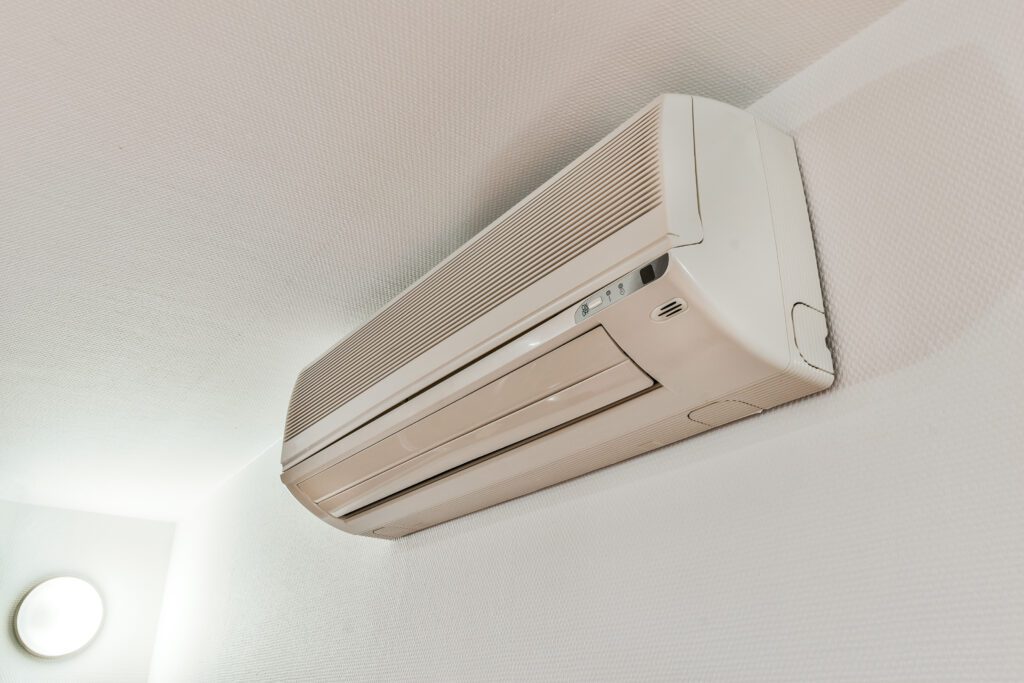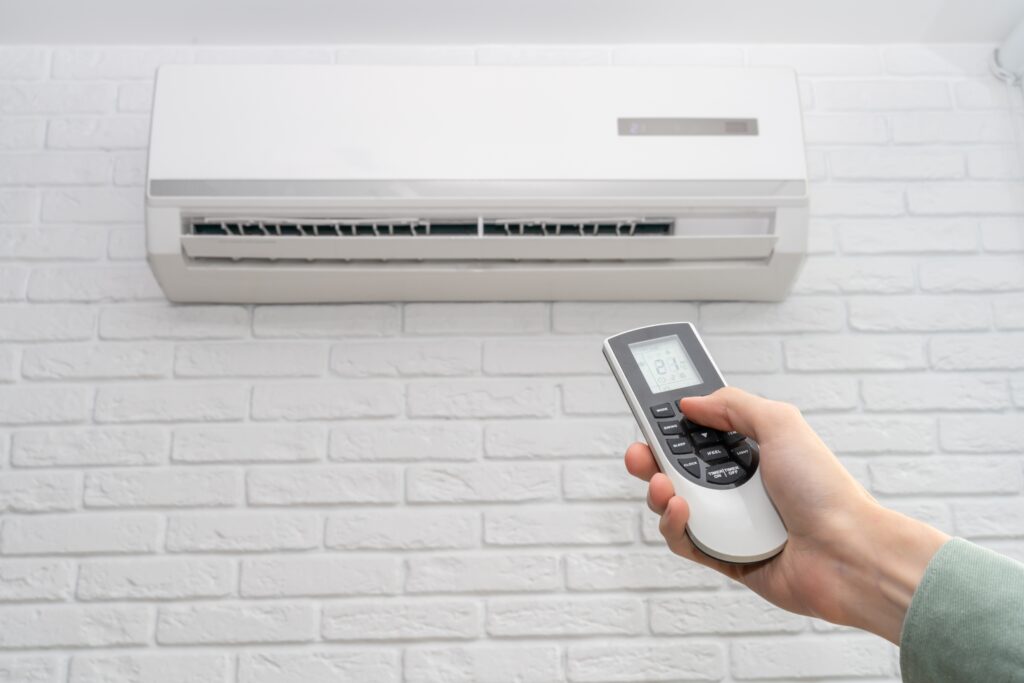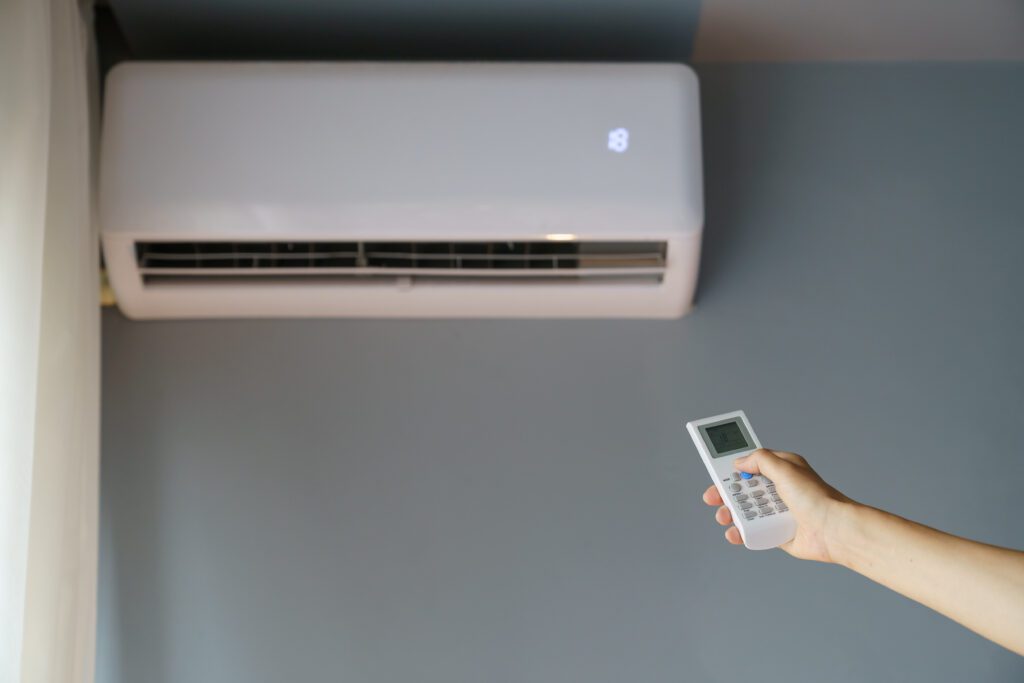Air conditioning systems are essential for maintaining comfort in our homes, especially during the warm summer months. However, even the most reliable AC units can experience issues that require professional attention. This guide will walk you through everything you need to know about AC repair services, helping you understand common problems, the repair process, and how to choose the right technician for your needs.
Understanding the Basics of AC Repair
Before delving into the intricacies of AC repair services, it’s essential to grasp the fundamentals of how air conditioning systems operate and the typical issues that arise. This knowledge allows homeowners to recognize when an issue may be present and understand the importance of timely intervention. Air conditioning systems work by removing heat from the indoor air and transferring it outside, creating a cooler environment. This process involves various components, including the compressor, condenser, evaporator, and expansion valve, each playing a crucial role in the system’s overall function.
The Importance of Regular AC Maintenance
Regular maintenance of an air conditioning system is critical for its long-term efficiency and reliability. Routine check-ups can identify potential problems before they escalate, saving homeowners time and money in the long run. Additionally, consistent maintenance can extend the lifespan of the unit, ensuring that it operates at peak performance for many years. Neglecting maintenance can lead to more significant issues, resulting in costly repairs or even the need for a complete system replacement.
During maintenance, technicians clean the filters, check refrigerant levels, and inspect other components for wear and tear. This proactive approach ensures that the AC runs efficiently, which not only keeps your space comfortable but also minimizes energy consumption. Moreover, regular maintenance can improve indoor air quality by reducing allergens and pollutants circulating in your home, making it a healthier environment for you and your family.
Common AC Problems and Their Causes
Several issues can plague air conditioning systems, leading to poor performance or complete failure. Some of the most common problems include:
- Refrigerant Leaks: These can result from corrosion or damage to the lines, leading to inadequate cooling.
- Electrical Failures: Faulty wiring or issues with the thermostat can disrupt the cooling cycle.
- Clogged Drains: Dust and debris can block condensate drains, causing water buildup and potential damage.
- Dirty Evaporator and Condenser Coils: When these coils become dirty, it leads to inefficient cooling and increased energy costs.
Understanding these common issues can help you notice early warning signs and seek repairs before a minor problem escalates. For instance, if you notice that your AC is running longer than usual without adequately cooling your space, it might indicate a refrigerant leak or dirty coils. Additionally, strange noises or smells coming from the unit can signal electrical issues or a buildup of mold, which should be addressed immediately to prevent further complications. By being vigilant and proactive, homeowners can maintain their air conditioning systems effectively and ensure a comfortable living environment throughout the year.
The AC Repair Process

The AC repair process typically involves several essential steps aimed at diagnosing and resolving issues swiftly. Understanding this process can help demystify the experience for homeowners.
Initial Inspection and Diagnosis
Upon arriving at your home, a qualified technician will perform an initial inspection of your AC unit. This inspection may include checking various components, such as the thermostat, coils, and motors.
The technician will ask questions about the symptoms you’ve observed, allowing them to narrow down the potential causes of the issue. It’s crucial to provide clear information about the problem, such as noises, smells, or changes in performance, to facilitate accurate diagnosis. Additionally, the technician may assess the overall condition of the ductwork and insulation, as these factors can significantly impact the efficiency and effectiveness of your AC system. A thorough diagnosis not only pinpoints the immediate problem but also helps in identifying any underlying issues that could lead to future repairs.
Repair vs Replacement: Making the Right Decision
During the repair process, the technician will evaluate whether repairing the existing unit is more cost-effective than replacing it. Several factors influence this decision:
- Age of the AC Unit: If the system is more than ten years old and requires significant repairs, replacement may be advisable.
- Cost of Repairs: If repairs exceed 50% of the cost of a new unit, replacement is often the better option.
- Energy Efficiency: Newer models are generally more energy-efficient, which can lead to long-term savings.
Homeowners should carefully consider these factors to make an informed decision that benefits their budget and comfort needs. Moreover, it’s essential to take into account the potential disruptions that could arise from a malfunctioning unit. For instance, an inefficient air conditioning system may lead to uneven cooling throughout the home, resulting in discomfort during hot weather. In some cases, it could also contribute to higher energy bills, as the unit struggles to maintain the desired temperature. By weighing the immediate costs against the long-term benefits of a new installation, homeowners can better navigate the complexities of the repair versus replacement dilemma.
Costs Associated with AC Repair Services

The cost of AC repair services can vary widely based on multiple factors. Understanding these costs can help you budget effectively and avoid unexpected expenses.
Factors Influencing AC Repair Costs
Several variables can affect the price of AC repair services, including:
- Type of Repair Needed: Simple fixes like replacing a capacitor will typically cost less than more complex repairs.
- Brand and Model of the AC Unit: Some systems may require specialized parts that can be more expensive.
- Labor Costs: Rates can vary by region and the experience level of the technician performing the work.
By understanding these factors, homeowners can better anticipate repair expenses and make informed decisions regarding their services. Additionally, the age of the unit plays a crucial role in repair costs. Older systems may require more frequent repairs, and as they age, finding compatible replacement parts can become increasingly difficult and costly. Furthermore, the efficiency rating of the AC unit can also impact repair costs; higher efficiency models may have more complex components that require specialized knowledge to repair.
Tips for Saving on AC Repair Expenses
While AC repairs can be costly, there are several strategies homeowners can employ to save money:
- Schedule Regular Maintenance: Preventative maintenance can help avoid major repairs by catching issues early.
- Compare Quotes: Always get multiple quotes from different service providers to ensure competitive pricing.
- Look for Discounts: Many companies offer seasonal promotions or discounts for first-time customers.
By taking these steps, you can reduce the overall cost of maintaining a comfortable indoor environment. Additionally, consider investing in a home warranty that covers HVAC systems; this can provide peace of mind and financial protection against unexpected repair costs. Another effective strategy is to educate yourself about common AC issues and their symptoms. By recognizing early signs of trouble, such as unusual noises or fluctuating temperatures, you can address problems before they escalate into more significant and expensive repairs. This proactive approach not only saves money but also extends the lifespan of your cooling system.
Choosing the Right AC Repair Service

Finding the right professional for your AC repairs is crucial for ensuring quality service. A trusted technician can help restore your unit efficiently and effectively. With the sweltering heat of summer, having a functioning air conditioning system is not just a luxury; it’s a necessity. Therefore, investing time in selecting the right repair service can save you from discomfort and potential costly repairs down the line.
What to Look for in a Repair Service
When selecting an AC repair service, consider the following criteria:
- Licensing and Insurance: Ensure the technician is licensed and insured to protect yourself from liability.
- Experience: Look for technicians with a solid reputation and years of experience in AC repair.
- Customer Reviews: Check online reviews and testimonials to gauge past customer satisfaction.
Taking the time to research and vet potential repair services can lead to higher quality repairs and better service overall. Additionally, it’s beneficial to inquire about the types of AC systems they specialize in, as some technicians may have more expertise with specific brands or models. This ensures that you are getting a technician who is well-versed in the particularities of your system, which can lead to more effective troubleshooting and repairs.
Questions to Ask Your AC Repair Professional
Before hiring a repair technician, asking the right questions can provide you with peace of mind regarding the service being offered:
- What is your diagnosis of the problem?
- What are the repair costs, and what does it include?
- How long will the repair take?
These inquiries will help ensure you understand the required repairs and the overall process. Furthermore, it’s wise to ask about the warranty on both the parts and labor. A reputable technician should stand behind their work and offer some form of guarantee, which can protect you from unexpected expenses should the same issue arise shortly after the repair. Additionally, don’t hesitate to ask about preventative maintenance tips that can prolong the life of your AC unit and enhance its efficiency, as this knowledge can be invaluable in keeping your system running smoothly for years to come.
Maintaining Your AC Post-Repair

Once your AC unit has been repaired, it’s essential to take steps to ensure it remains in good condition to prevent future issues. Regular maintenance and vigilance can save you money and hassle down the road.
Routine Maintenance Tips
To keep your air conditioning system running smoothly after repairs, consider the following routine maintenance tips:
- Change Filters Regularly: A clean air filter can improve airflow and efficiency.
- Clear Debris: Remove leaves and other debris from around the outdoor unit to allow for proper air circulation.
- Schedule Yearly Inspections: Have a professional inspect your unit annually to catch issues early.
Implementing these practices will contribute to the longevity of your AC system. Additionally, consider investing in a programmable thermostat, which can help optimize your unit’s performance by adjusting the temperature based on your schedule. This not only enhances comfort but can also lead to significant energy savings. Furthermore, keeping an eye on the refrigerant levels is crucial; low refrigerant can lead to inefficient cooling and increased wear on the system.
Signs Your AC May Need Another Repair
Even after repairs, it’s essential to remain vigilant for signs that your AC unit may need additional service:
- Unusual Noises: Grinding or rattling sounds can indicate serious mechanical issues.
- Inconsistent Temperatures: If certain rooms are warmer than others, there might be a problem with airflow.
- Increased Energy Bills: A sudden spike in energy costs can signal inefficiency due to underlying issues.
Being proactive and responsive to these signs can help you maintain your home’s comfort effectively. Additionally, keep an eye out for moisture or leaks around your AC unit, as this can indicate a refrigerant leak or drainage issue. Regularly checking the condensate drain for clogs can prevent water damage and ensure your system operates efficiently. Monitoring the overall performance of your unit will not only enhance comfort but also extend the lifespan of your air conditioning system.
In conclusion, understanding AC repair services will prepare you for any eventuality with your cooling system. From recognizing the importance of regular maintenance to choosing the right technician, informed homeowners are better equipped to ensure their air conditioning systems operate efficiently.



